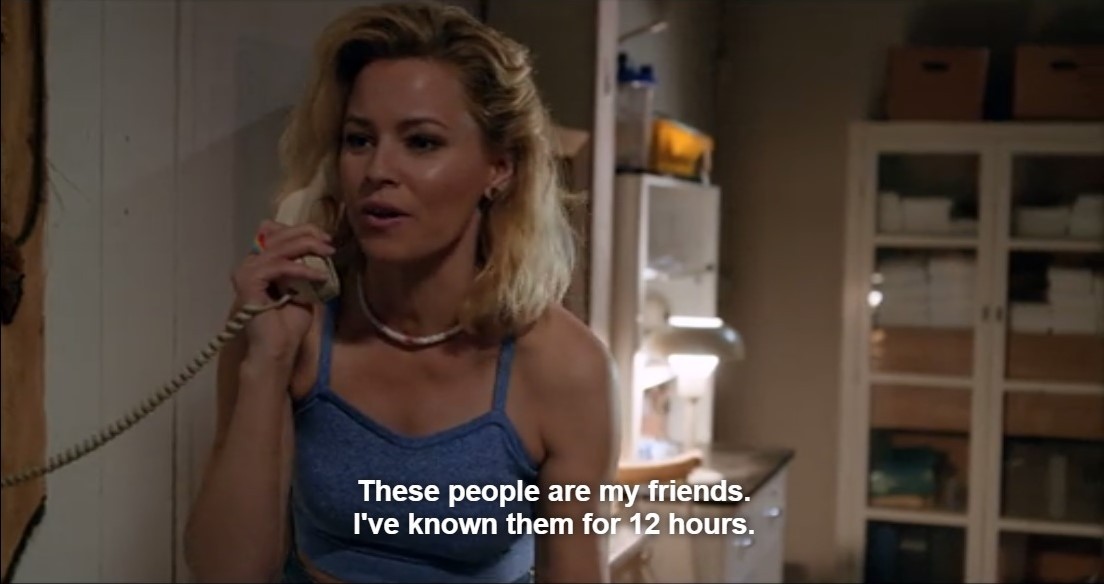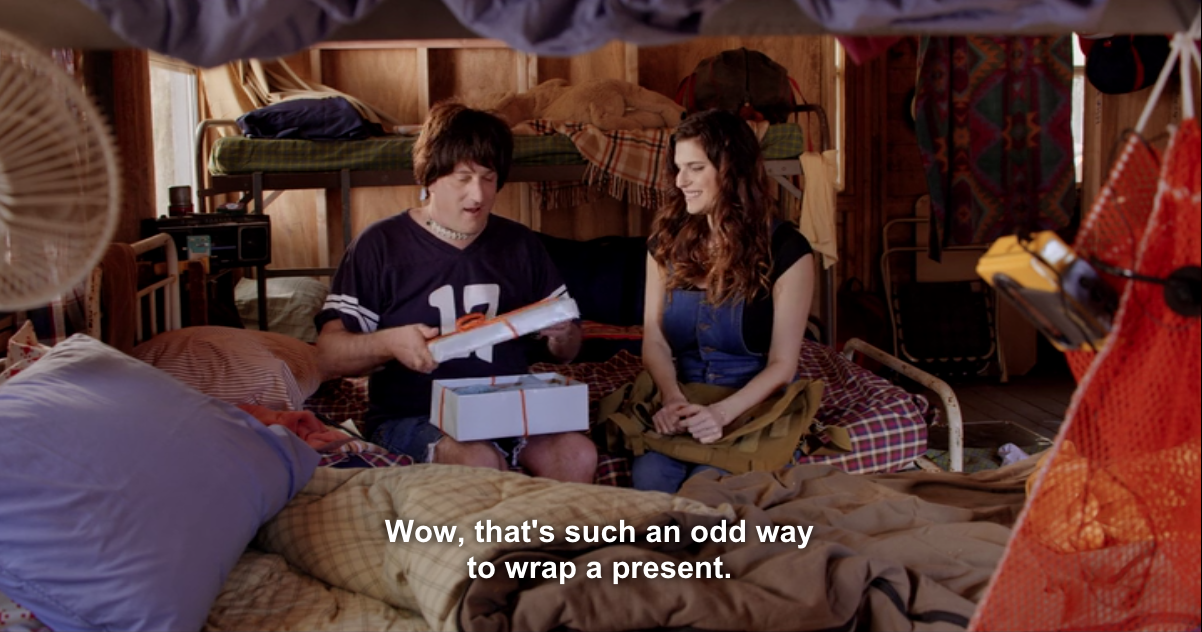The thing about WHAS is that if you know nothing of it, I can only tell you it's a film about a bunch of camp counselors on their last day at Camp Firewood. That's it. Is it a comedy? Yes. Is it a parody? Yes. Is it satire? Definitely. Is it a drama? You could say so. It's just this crazy, zany, weird, intelligent and completely delightful ride that you can only enjoy if you don't think too much of things like narrative and coherence, because those things aren't treated in this film the same way other films treat them. And that's the beauty of it. It's meant to be a film about one single day at camp, yet there are literally a thousand and one things happening, sometimes simultaneously, all in the space of those few hours.
Prequels and sequels aren't always well-received, especially when the original is really good. When I heard that there was going to be an eight-episode miniseries prequel for WHAS I was pretty skeptical, even with practically the entire original cast returning. Still, I waited anxiously for July 31, the day of the release of WHAS: First Day Of Camp, and naturally had to wait some more because the episodes were released on Netflix, which is a service I don't have access to, and thus had to get hold of the episodes from a, uh, different source. Anyway! Guess what?
I LOVED First Day Of Camp. Absolutely loved it. Had a blast.
I think the hilarity in First Day Of Camp is that it just keeps getting more and more ridiculous, which is what WHAS was all about. One bit that always gets me is when they reference their ages by clearly insisting that they are all "sixteen or seventeen" with their lives ahead of them while wearing outfits that display all manner of paunches and double chins. Even makeup can't hide the lines on their faces. Although there are exceptions to this - ie. Paul Rudd and Elizabeth Banks.
Paul Rudd as Andy honestly gets some of the best lines, like this one. The fact that Rudd is just about the nicest guy in Hollywood only makes his turn as the super-hot but super-douchebaggy Andy all the better. In WHAS, he was constantly cheating on girlfriend Katie (Marguerite Moreau) with Banks' character, Lindsay. In First Day Of Camp, we get to see how Andy and Katie got together, with Andy working hard to win Katie's heart.
While the fun is largely in seeing beloved characters tell their story, there's also plenty of references to the original movie, as well as new characters to inject some fresh life into the camp. Not all the characters work, and some storylines could have been dropped, but overall it was the perfect thing to binge watch within a day. I'll let the gifs/screencaps do the talking:
Abby Bernstein before she hit puberty (which in itself is extremely entertaining)
Lindsay on her Camp Firewood friends
Andy talking about his romantic side
Andy being late
Gene and the famous can of vegetables
Andy being a good counselor
Coop getting a gift from his girlfriend Donna
Acclaimed sleazeball of a theatre director Claude Dumet seducing Susie
This could go on for a long time. I should just end this by saying that I'm highly impressed that David Wain and Michael Showalter managed to make a prequel miniseries that lived up to and surpassed expectations, and if you haven't seen it yet, you really should. Start with the film, then watch the prequel episodes. It's worth it.























